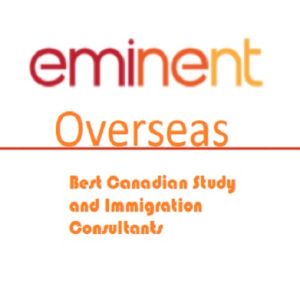Navigating Spousal Or Common Law Partner Sponsorship: A Comprehensive Guide
Posted by Eminent Overseas on April 15th, 2024
Introduction: Spousal or common-law partner sponsorship is a crucial avenue for individuals seeking to reunite with their loved ones in Canada. Whether you're married or in a committed relationship akin to marriage, this immigration process offers a pathway to join your partner in Canada. Understanding the intricacies of spousal sponsorship is paramount to a successful application and eventual reunion. This comprehensive guide aims to delve into the various aspects of spousal or common-law partner sponsorship, providing insights, tips, and vital information to aid in navigating this process effectively.
Understanding Spousal Sponsorship: Spousal sponsorship is a means for Canadian citizens and permanent residents to sponsor their spouses or common-law partners to immigrate to Canada. This process falls under the Family Class sponsorship program, which aims to facilitate family reunification. By sponsoring their spouse or partner, Canadian residents can help them obtain permanent residency and eventually citizenship.
Eligibility Criteria: To qualify for spousal or common-law partner sponsorship, certain eligibility criteria must be met. These typically include:
1. Relationship Status: Applicants must be legally married to or in a genuine and exclusive common-law relationship with the sponsor.
2. Legal Status: The sponsor must be a Canadian citizen or permanent resident.
3. Age: Both the sponsor and the sponsored partner must meet the age requirements.
4. Genuine Relationship: Applicants must demonstrate the genuineness of their relationship through various means, including documentation and interviews.
5. Admissibility: Both the sponsor and the sponsored partner must meet Canada's admissibility requirements, which involve factors such as criminal history, health, and security concerns.

Documentary Requirements: Documentation plays a pivotal role in spousal sponsorship applications. Essential documents typically include:
1. Marriage certificate or evidence of a common-law relationship.
2. Identification documents for both parties.
3. Proof of the sponsor's Canadian citizenship or permanent residency.
4. Evidence of shared financial responsibilities, such as joint bank accounts or bills.
5. Photographs depicting the couple together.
6. Affidavits from friends and family attesting to the genuineness of the relationship.
7. Any additional documents required by Immigration, Refugees, and Citizenship Canada (IRCC).
Application Process: The application process for spousal sponsorship involves several steps:
1. Submission of the sponsorship application by the sponsor.
2. Processing of the application by IRCC, including review of documents and background checks.
3. Request for additional information or documentation if necessary.
4. Medical examinations and criminal background checks for the sponsored partner.
5. Issuance of a decision by IRCC.
It's important to note that processing times may vary depending on various factors, including the volume of applications and the complexity of individual cases.
Common Challenges and How to Overcome Them: While spousal sponsorship offers a viable pathway for family reunification, applicants may encounter certain challenges during the process. Some common issues include:
1. Insufficient Documentation: Incomplete or inadequate documentation can lead to delays or rejection of the application. Ensure all required documents are provided and seek guidance if necessary.
2. Proof of Relationship: Demonstrating the genuineness of the relationship can be challenging, especially for couples living apart. Utilize various forms of evidence, such as correspondence, photographs, and affidavits, to support your claim.
3. Admissibility Concerns: Issues related to criminality, health, or security may affect admissibility. Address any concerns proactively and provide necessary explanations or waivers where applicable.
4. Lengthy Processing Times: Spousal sponsorship applications may take several months to process, causing frustration and anxiety. Stay informed about the status of your application and exercise patience throughout the process.
Tips for a Successful Application: To enhance the chances of a successful spousal sponsorship application, consider the following tips:
1. Start Early: Begin the application process well in advance to allow ample time for gathering documents and completing necessary steps.
2. Seek Guidance: Consult with immigration professionals or legal experts for personalized advice and assistance.
3. Be Thorough: Ensure all forms are completed accurately, and all required documents are submitted as per IRCC guidelines.
4. Communicate Effectively: Maintain open and honest communication with IRCC throughout the process, responding promptly to any requests for information.
5. Stay Updated: Stay informed about changes to immigration policies or procedures that may affect your application.
Conclusion: Spousal or common-law partner sponsorship offers a valuable opportunity for individuals to reunite with their loved ones in Canada. By understanding the eligibility criteria, documentation requirements, and application process, applicants can navigate this journey with confidence. While challenges may arise along the way, perseverance, preparation, and adherence to guidelines can lead to a successful outcome. Through careful planning and diligent effort, families can embark on a new chapter of their lives together in Canada.



